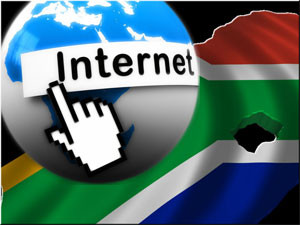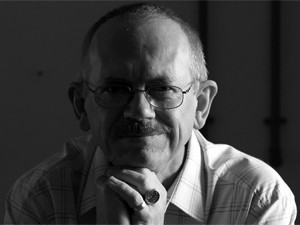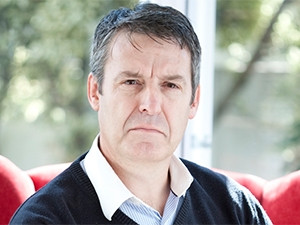
There is outrage over the South African government's decision to join China and Russia in voting against a United Nations (UN) resolution on the "promotion, protection and enjoyment of human rights on the Internet".
The opposition and analysts say aligning SA with the closed and restrictive governments will impact the country's ability to innovate, nurture new businesses and secure economic growth.
On Friday, the UN held a vote on the resolution, which seeks to bring political commitment from member states to protect human rights online such as freedom of expression and privacy. The resolution further seeks to ensure the release of those imprisoned for "legitimate" freedom of expression online.
Other key points of the resolution include investigating attacks against bloggers or other Internet users, and refraining from preventing access to information online by, for example, shutting down the Internet during key times such as elections or terror attacks.
The vote extends human rights theoretically enjoyed offline to the Internet. But China and Russia opposed the vote, primarily on the grounds of the resolution's call for an open and accessible Internet, and to uphold people's rights to freedom of expression.
Diplomats from China and Russia tabled four amendments to remove passages to ensure citizen access to the Internet, and references to freedom of speech.
Countries that lined up to support the amendments included autocracies like Saudi Arabia and Qatar, but also democracies India, Kenya and SA.
However, these amendments were rejected and the resolution passed.
Disturbing but unsurprising
In a statement, opposition party, the Democratic Alliance (DA), says SA's vote against the resolution promoting Internet freedom is "disturbing but unsurprising, given the ANC-government's penchant for censorship".

In voting against this resolution, the party says, SA has joined the ranks of China, Russia and North Korea, countries that have poor human rights track records and are the biggest practitioners of censorship.
"The vote against this resolution speaks volumes about the ANC-government's 'zero cares' attitude about the public outcry against its ongoing programme of censorship. So little does it care that it has unashamedly paraded its love for censorship on the international stage."
ICT veteran Adrian Schofield says voting against the resolution flies in the face of SA's Constitution and everything the ANC used to stand for. "Frankly, I have no idea why and I am very disappointed that our UN representative did so."
According to Schofield, Internet freedom, like press freedom, is vital for the sharing of knowledge, access to truth and exposure of corruption.
"As we have seen recently at the SABC, it is all too easy for a repressive government to shut down access to information for the majority of people who are dependent on public services for that access. Freedom of access to information, freedom of association and freedom of speech are essential to a democracy where the people control the government. When government controls the people, there is no democracy," he points out.
Information flow
Ovum senior analyst Richard Hurst says at the core of the issue is that government is seeking to control the flow of content and ideas in and out of the country.
"In essence, they [the government] realise censorship of the more traditional media outlets such as print and TV does not have the same impact as the control over the flow of Internet content," says Hurst.
"The vote against human rights should be viewed in a serious light and may send the wrong signal about where the country stands on the issue of human rights in total. This seems to fly in the face of the constitution and the original ideals of the creation of a democratic South Africa in 1994."

]World Wide Worx MD Arthur Goldstuck says SA's foreign policy and, in particular, its voting behaviour at the UN, is based on appeasement of countries perceived to be close allies rather than on the country's own principles of human rights and freedom of expression.
"We have seen a consistent pattern of ignoring rights and freedoms in countries where the perpetrators of human rights abuses are perceived as allies or major trading partners of South Africa," he says.
"We have been seeing consistent efforts by government to erode human rights and, in particular, freedom of speech, in South Africa. From the Film and Publications Board wanting control of all online content, to the acting COO of the SABC declaring censorship is an English concept. We see nothing but contempt for freedom of speech and human rights emanating from government circles."
Goldstuck is of the view that Internet freedom is an online equivalent of human freedom. "Freedom of association and of speech on the Internet, where it does not intrude on the rights of others to such freedom, is simply a connected version of those same freedoms in the physical world. Limiting such freedoms on the Internet is not only the starting point to limiting those freedoms in general; it is, in fact, equivalent to limiting those freedoms in general."
Meanwhile, Ncumisa Notutela, deputy ambassador to the UN in Geneva, has defended SA's stance, saying the country's Constitution guaranteed the rights of expression and opinion.
"The draft resolution does not make reference to acts of hatred propagated through cyberspace, including cyber-bullying," she notes.
She adds the assertion by the main sponsors of the resolution "that the exercise of the right to freedom of opinion, online and offline, is not subject to limitations, is a false notion".
"The draft resolution omits key provisions on the permissible limitations and prohibition of hate speech under international human rights law."
Share